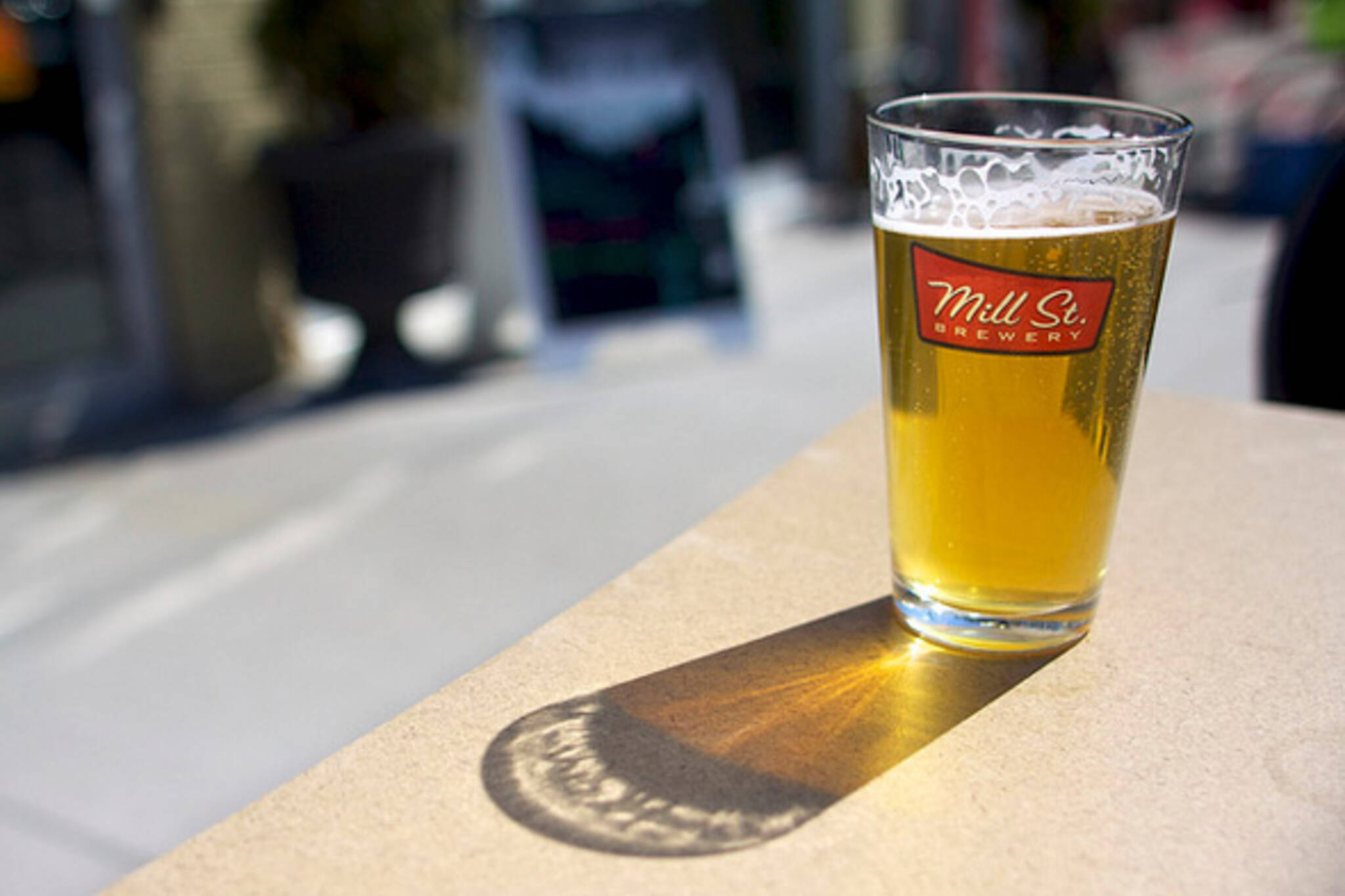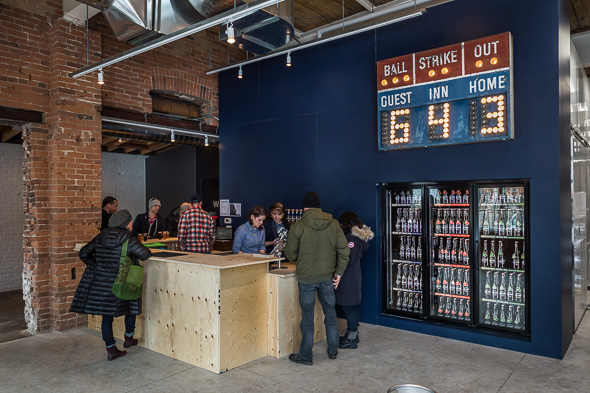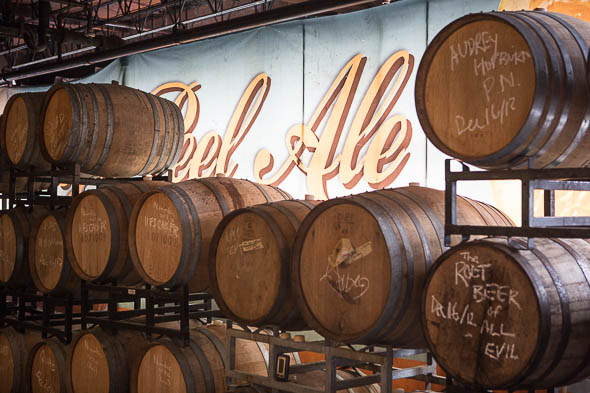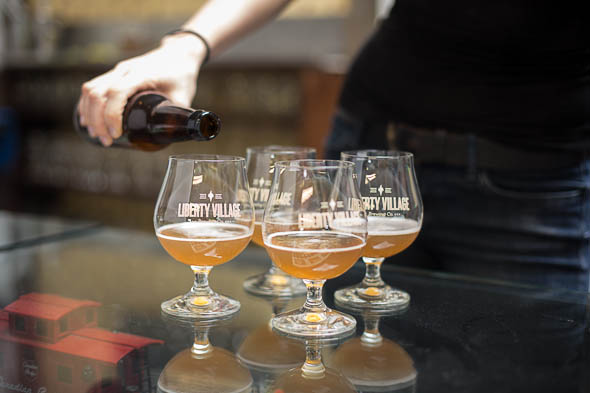
Will Toronto ever be the craft beer capital of the world?
Could Toronto ever be the so called craft beer capital of the world? That's the question that's been raised recently thanks to a joint proposal put forward by two city councillors who, conceivably, have recognized craft beer's potential to draw tourism and create jobs in the city (a similar realization has led to the Music City initiative) .
While the idea is a noble one, in order to determine if that's even possible, it's probably worthwhile to see how we stack up as a craft beer city right now. The recent boom in craft beer here and the gratuitous coverage it receives from hop fiend fan boy bloggers might make it seem that there are new craft breweries opening here every day, but how many do we actually have?
The website Ontario Beer Network, which handily tracks such things, says the city currently has 18 open breweries, nano breweries, or brewpubs, and that number jumps to 36 if you also include the slew of companies that contract brew their beer and call Toronto home.
By all accounts, that's a pretty decent number, especially when you consider that Ontario Beer Network also lists an additional 16 breweries in the "planning" stages (don't too excited though, some of those will likely never make it past that crucial "planning" stage.")

If you factor in a more telling statistic, however, namely breweries per capita, we're really not all that impressive. Toronto has a current population of 2.5 million, which means that every brewery we have in the area is tasked with servicing over 138,000 people. You don't have to be a beer nerd to know that few of them are actually up to the task of making that much beer.
By this same measure, Montreal, whom the website Beer Advocate tells us has 23 open breweries, enjoys a brewery for every 70,000 Habitants and the Greater Vancouver area has a brewery for every 51,000 residents, thanks to the 43 breweries listed on Beer Me BC.
Of course, if we're looking to name the Craft Beer Capital of the World, we are sadly not likely to find it anywhere in Canada. No, that distinction almost certainly falls to a city in the United States where craft beer has been steadily gaining momentum since arguably the mid-1970s.

And among the places where craft beer is thriving the most, few might reasonably lay claim to the title of Craft Beer Capital over Portland, Oregon, which was fittingly the site of this year's Craft Brewers Conference.
Not only does Portland have 53 breweries--more than any other city on earth--meaning there is a brewery for every 11,000 Portlanders, but the people there support the scene. Every pub and every corner store has at least a modest selection of local and craft beer, and even the barbershops and strip clubs serve craft beer.
46% of all retail sales in Portland are craft beer and, amazingly, 53% of all of the draught poured in the state of Oregon are Oregon-made beers.
So what's the secret?
Well, as you might suspect, the places where craft brewers thrive are places where the rules and legislation allow them too. In the United States, for example, the interest in any beer that was different than the usual likely started largely as a result of "H.R. 1337," an amendment signed by Jimmy Carter in 1978 that created an exemption from taxation for beer brewed at home for personal or family use.

Once these home brewers started making something worth sharing with people who might pay for it, in Portland and the rest of Oregon, H.R. 1337 was shortly followed by the passage of the 1985 "brewpub law" which allowed for the brewing and dispensing of beer on the same premises--something previously not legal.
Then in, 1995, Oregon State University started a Fermentation Science program, which began formally training people for careers in brewing. As a not-indirect result, according to the Oregon Brewers Guild, the economic impact of the brewing industry in 2012 was $2.83 billion, and employed 29,000 people.
In short, craft beer thrives where influential people see its potential and make changes in order to let the industry thrive. Portland's beer scene is thriving because they have historically fostered an environment that supports their beer scene.
Vancouver's beer scene is growing thanks to Vancouver bylaw changes and relaxation of provincial liquor laws a few years ago that allowed brewers to run tasting lounges serving food and drink onsite, and the proliferation of craft brewers in Quebec over the last few years is probably due at least in some small part to the fact that brewers don't have to squabble about paying their way into a monopoly just to sell their beer and can move their products directly through corner stores.
So can Toronto ever be the "craft beer capital of the world?" That really remains to be seen, but with provincial politicians enacting changes to try to improve the province's craft beer scene and local councillors making public declarations that they want to help too, we're certainly headed in the right direction.
Ben Johnson also writes about beer over on Ben's Beer Blog. Follow him on twitter @Ben_T_Johnson.
Latest Videos
Latest Videos
Join the conversation Load comments







